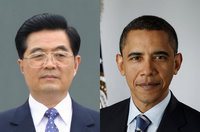As the People's Republic of China celebrated its 60th anniversary, many observers understandably used the occasion to advocate strengthened cooperation between China and the United States. However, the substance of bilateral cooperation depends considerably on the balance of power between the two countries. The ongoing debate over the trend in the Sino-American balance centers primarily on three problematic assessments:
- The "G-2" assessment, which argues that China and America are the two powers whose partnership is most needed to address global challenges, discounts the cooperation that they require from Europe and emerging powers to make substantial headway.
- The "Chinese century" assessment downplays the myriad obstacles, internal and external, that China will confront as it seeks to achieve greater global influence.

